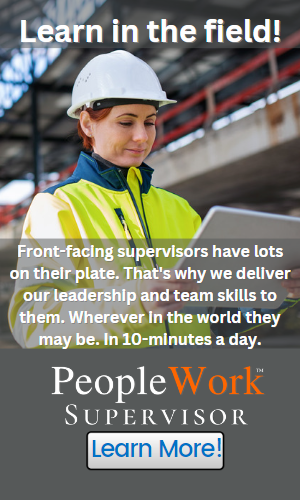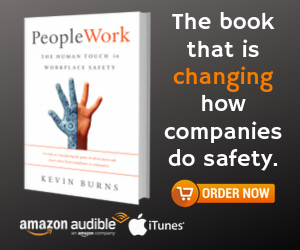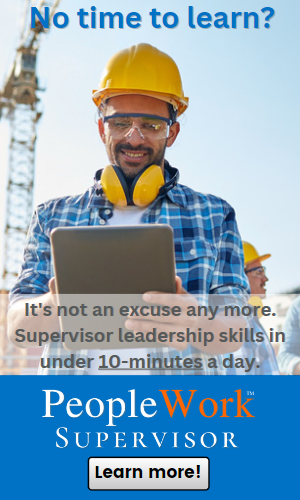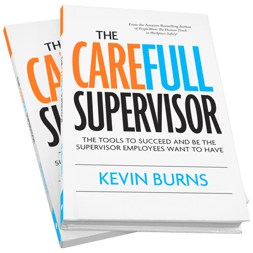My first paid job was as a 12-year-old salesman on a Dickie Dee ice cream bicycle. I worked on commission with no hourly wage. In 1973, popsicles cost a nickel and ice cream drumsticks were a quarter. The ice cream bike was a single speed, 3-wheeler that weighed 600 pounds fully loaded, and my route was a hilly, blue-collar town in Renfrew, Ontario.
Like most families in Renfrew, mine didn’t have much money. My dad was an office manager at a tire shop and my mom was an elementary school teacher. I was working to save up for a 10-speed bike that cost $125.

I quickly learned what time workers at the local factories took their breaks. Most of them had no air conditioning, so a frozen treat always hit the spot.
I noticed the camaraderie those factory workers shared. It wasn’t uncommon for one guy to step up and say, “We’ve got five guys here, so it’s five cones on me.” It seemed to me that whatever they were doing, they were in it together.
The following year I worked part time in a golf course pro shop. My boss, the golf pro, was an intense manager who was insistent on routines, procedures, and presentation. Everything had to be done just so, no surprises.
Then as a young teenager, I worked at our small town’s first radio station. I emptied trash cans and helped out wherever I could. I learned that the best announcers were the ones who connected with their audiences on a personal level.
The job started me on an 18-year career in broadcasting doing jobs from sales rep to on-air announcer (11 years as a morning-man) to supervisory and management positions.
Through all of those early jobs, I found that one thing trumped everything else— and that one thing was relationships.
From Best Employee to Supervisor.
If you’re not good at relationships, you don’t earn respect at work. The best managers and supervisors I’ve met on the job all had one thing in common: they were good at relationships.

For a new supervisor, that 20-year trades ticket becomes all but useless the moment they become a supervisor. Where competence for the trade may have gotten you promoted to supervisor, your job now is communicator, delegator, coach, motivator, team-builder, trusted advisor. Have you got those skills?
What separates the exceptional supervisors from the mediocre is the ability to cultivate trusting relationships.
The One Strategy for Supervisor Success
Once you become a supervisor, you stop being the star performer. You may have been the most skilled, the most experienced, even the most vocal. But your days of being the star-player end the moment you become a supervisor.
Supervisor mindset strategy: you are not the star - you are the coach.
Your team, the team you are now in charge of, do not really care how good you used to be at the job. What really matters to them is how good they are about to become with you as their coach. They want their skill level to surpass yours, because you’re not the star anymore. They are. And you are their guide, their coach, their mentor.
That’s the job. Step back from the spotlight. The moment you become a supervisor is the moment you help others to step into the spotlight.
We Buy from People We Trust
We do not buy from people we do not trust. We do not take advice from people we do not trust. We do not allow people we don’t trust to influence us. We pay attention to and listen to the people who have earned our trust.
That usually precludes those with a hidden agenda. People looking to use us to advance themselves don’t get our trust. And we don’t listen to the people we don’t trust.
 Every lasting relationship must have trust at its foundation. But trust isn’t handed to you by your authority or position. Just because you’re in charge doesn’t mean your team trusts you. You have to prove to them that their best interests come first, then your own.
Every lasting relationship must have trust at its foundation. But trust isn’t handed to you by your authority or position. Just because you’re in charge doesn’t mean your team trusts you. You have to prove to them that their best interests come first, then your own.
Learn the skills that make your team members better. Approach the job with the mindset that the more you help your team succeed, the more you succeed. That your success is dependent on their success. The Safety Communications & Coaching for Supervisors Program is focused on helping supervisors build trust, influence and communications with their teams.
Carry the desire to coach your team to far exceed your own abilities. A coach that doesn’t want others to surpass their old performance, is selfish. That puts the team at risk.
The best supervisors, safety personnel, managers and executives are the ones who put the welfare, success, and safety of their teams first.
You will find much more reward in the work when you help others find reward for themselves. And when your people are enjoying great success, they will continue to protect that success. Safety is the result.
--
Kevin Burns is the President/CEO of KevBurns Learning. Kevin works with smart, caring companies to energize safety culture, build teamwork, and improve employee participation in safety.
In 2020, BookAuthority.org named PeopleWork #7 of The Top 44 Workplace Safety Books of All Time. Buy yourself a copy of PeopleWork: The Human Touch in Workplace Safety and give another as a gift to a colleague.
Subscribe to Kevin’s Blog.




